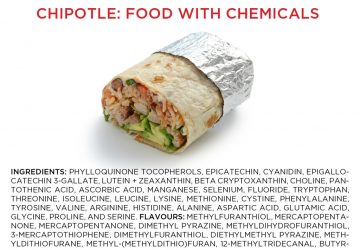 You may remember a brouhaha that ensued over purported “research” by French anti-genetically improved food (GIF) “scientist” Gilles-Eric Seralini that claimed to show that GIFs caused cancer. The study methodology was awful, with numerous scientific authorities including the European Food Safety Authority (EFSA) finding the study inadequate. Others were less reserved, with a Los Angeles Times commentator characterizing it as “weapons-grade junk science.”
You may remember a brouhaha that ensued over purported “research” by French anti-genetically improved food (GIF) “scientist” Gilles-Eric Seralini that claimed to show that GIFs caused cancer. The study methodology was awful, with numerous scientific authorities including the European Food Safety Authority (EFSA) finding the study inadequate. Others were less reserved, with a Los Angeles Times commentator characterizing it as “weapons-grade junk science.”
The study was eventually retracted by the journal that published it. But, like a zombie shot in the chest rather than the head, Seralini is back, publishing essentially the same paper in a different no-name open-access journal, Environmental Sciences Europe. The journal is irrelevant in the scientific press: It is too new to have a Thomson-Reuters Impact Factor (a measure of journal’s perceived importance and reliability). According to RetractionWatch, a science blog that tracks retractions in research, if it did the factor would be 0.55, compared to (say) 32.438 for a more important journal (in this case Nature Biotechnology). RetractionWatch’s calculations indicate ESE would rank 190th of 210 journals in “environmental sciences.” (In other words, it’s about as wave-making as a certain “Humane Society” CEO’s book.)
Were the claims actually as groundbreaking and credible as Seralini and the “GMO labeling” crowd suppose they are, they would land in a credible journal, not some publishing mill essentially nobody reads. No surprise then that just as Seralini’s initial publication was evaluated and rejected by numerous scientific authorities including the German Federal Institute for Risk Assessment, six French national scientific academies, and EFSA, so too is his latest stunt getting taken to the cleaners. The UK-based Science Media Center has collected numerous scientists’ reactions to the republication, and they are just as skeptical of the quality of the new study as they were of the retracted version.
Ultimately, no matter how many papers of questionable methodology published in no-name journals claim that GIFs are harmful, they lack the credibility to overturn an overwhelming scientific consensus that GIFs are just as safe as conventional foods, meaning all they can say is, “Rats.”




